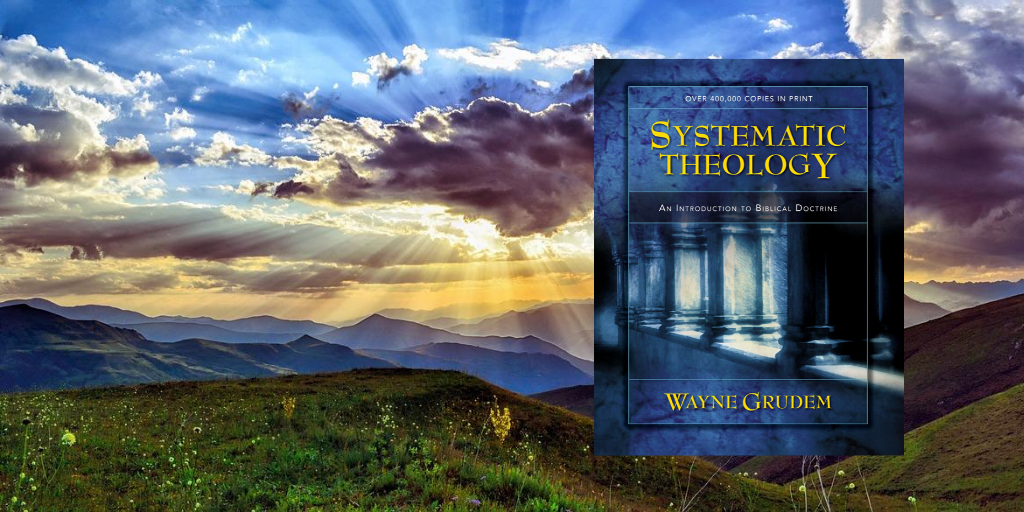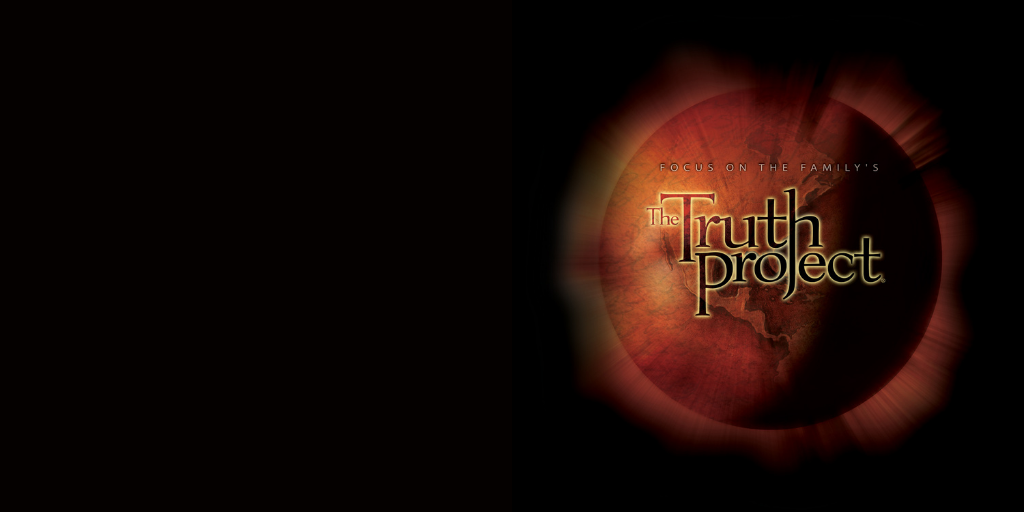Reading Systematic Theology with Wayne Grudem – Creation – Why, how, and when did God create the universe?
This post is part of a 50+ post series from the classic work by Wayne Grudem (PhD, Cambridge), Systematic Theology: An Introduction to Biblical Doctrine. The aim of each post is to provide an overview of each chapter in the book and related resources for each topic.
Synopsis of Chapter
In this chapter of Systematic Theology, Grudem addresses creation: why, how, and when God created the universe. Grudem defines creation as: “God created the entire universe out of nothing; it was originally very good; and he created it to glorify himself.”
Grudem reviews some things that most Evangelicals agree with: like the creation “out of nothing” (Latin: ex nihilo), the special creation fo Adam and Eve, the goodness of the universe, and God’s distinctness from the universe. But he also covers the various ways Christians disagree about creation like how old the universe is or whether or not God used evolution.
Creation Out of Nothing
The first aspect of creation is that God created the universe out of nothing. He did not use pre-existing materials, but spoke the universe into existence by himself.
- “In the beginning, God created the heavens and the earth.” (Genesis 1:1)
- “All things were made through him, and without him was not any thing made that was made.” (John 1:3)
- “Worthy are you, our Lord and God, to receive glory and honor and power, for you created all things, and by your will they existed and were created.” (Revelation 4:11)
The creation of all things implies all things visible and invisible (Colossians 1:16). He created blue whales, tulips, angels, crickets and mountains. And the crown of his creation was the unique creation of Adam and Eve, when he made male and female in his image (Genesis 1:27). Those who affirm Adam and Eve arising out of a long chain of evolutionary processes apparently do not hold to the complete truthfulness of Scripture. God also created time. Finally, it’s important to remember this was a Trinitarian act since creation happened through the agency of his Son (John 1:3) and the Holy Spirit (Genesis 1:2).
A Distinct Creation For God’s Glory
God’s relationship to creation is unique among the world’s religions. He is distinct from creation and is not a part of it. Instead, he rules over everything he has made. He is transcendent – or “above creation” and independent from it. Though he is transcendent, he is also immanent in creation or “remaining in” the created world. Several verses illuminate how God interacts with the world in his immanence:
- “In his hand is the life of every living thing and the breath of all mankind.” (Job 12:10)
- “for ‘In him we live and move and have our being’; as even some of your own poets have said, ‘For we are indeed his offspring.’” (Acts 17:28)
- “And he is before all things, and in him all things hold together.” (Colossians 1:17)
In both God’s transcendence and immanence, this view militates against other non-Christian perspectives. For instance, materialism (atheism) suggests there is no God. Or pantheism suggests that God is all there is. Dualism argues God and the universe existed eternally side-by-side. And deism, denies God’s immanence in creation. So no other major worldview completely captures the transcendence and immanence of the God of the Bible.
The purpose of his creation was to showcase God’s glory and goodness. Isaiah 43:7 declares “everyone who is called by my name, whom I created for my glory, whom I formed and made.” God created people and the rest of the universe to exalt his reputation – his glory. There is no other so-called ‘god’ who had the power to stretch out the heavens (Jeremiah 10:12). And no other ‘god’ who can create the intricacies of subatomic particles, proteins, or people. Even scientists in a laboratory cannot replicate the amazing act of creation ex nihilo. And after he made this glorious creation, God called it “very good” (Genesis 1:31).
The Relationship Between Science & Scripture
Though God is fairly clear about creation in his Word, Creation is one area where scientists have presumed to speak as well. Throughout the history of science, scientists have often weighed in on matters of creation.
At the beginning, many of those men were Christians: Isaac Newton, Galileo Galilei, Johannes Kepler, Blaise Pascal, and others. In the past hundred years or so, this has not been the case as much. And since many scientists are non-Christians, that often object to the traditional understanding of what Scripture teaches on creation.
False Theories About Creation
Some of those theories are clearly inconsistent with Scripture. Philosophical materialism is obviously wrong because it denies the existence of God. Big Bang cosmology, the leading theory on the development of the known universe, is usually dependent on materialism.
Evolution is also anti-biblical since it affirms something contrary to Scripture. In the plain reading of Genesis, various types of life forms like sea creatures, beasts, and creeping things were created in groups after their kind (Genesis 1:11, 1:21, 1:25). There is no sense of a gradual change over hundreds of millions of years in Scripture. Instead, evolution is an imported concept read into the first chapters of Genesis, especially after Darwin who was an early Western promoter of evolutionary theory.
This is not to say that Christians disagree with everything evolutionists teach. For instance, evangelicals have distinguished between “micro” and “macro” evolution. In microevolution, we observe small changes within species – ex. changes between finch beaks in a small area due to environmental changes and natural selection. There is nothing in the Bible that would disagree with that concept. However, the Bible does not affirm the molecules-to-man theory of macroevolution which attempts to account for the origin of all life forms.
‘Old-Earth’ Theories About The Age of The Earth
There are several theories that aim to accommodate modern scientific theories with the biblical account in Genesis 1 and 2. Some have proposed a “gap” in time between Genesis 1:1 and 1:2. This is where there were possibly millions or billions of years between God’s initial creation in Genesis 1:1 and Genesis 1:2 which begins the 6 days of creation. Though this theory has fallen out of favor, it held tremendous sway in the 20th century.
Others have opted for the day-age view of the original 6 days of creation. They argue that “day” in Genesis 1 (Hebrew: yom) is actually a really long period of time. Just as the English word for ‘day’ can mean a long period of time (ex. Back in my ‘day’ means a long time ago), so also the Hebrew word for day has the same grammatical flexibility. One of the problems with this view is that the events in Genesis do not correspond to the current understanding of the events in Big Bang cosmology. Many Evangelicals have adopted this reading of Genesis.
Still others have advocated for a literary framework view. They argue the days in Genesis 1 are a framework for creating and filling the universe. On the first three days, the basic structure of the universe were formed (light, darkness, sky, water, dry land separated). On the second three days, the universe was filled (sun, moon, stars, fish, birds, animals, and man). What matters is the structure of the passage, not the chronology. Few Evangelicals have adopted this way to read the first chapter of Genesis.
The Traditional ‘Young Earth’ View Of Creation
The traditional position on the age of the universe is that its relatively young. Estimates vary, but it’s usually dated to be between 6,000-20,000 years old – far younger than the 13.8 billion years proposed by modern cosmology. The biblical rationale for the young age of the universe is as follows.
- Genesis 1 indicates there were 6 days of creation. It seems these are literal or normal days in the plain reading of the text.
- The genealogies in the Bible tie back Adam to Abraham, David, and Jesus (Genesis 4, 5, 11, Matthew 1, Luke 3, etc.). Counting years from the genealogies can provide an estimate of how many years it’s been from the creation of Adam until today.
- Death was introduced by Adam’s sin, including into the animal kingdom (Genesis 3:17-19, Romans 8:20-23). Therefore the fossil record cannot include any death before the Fall around the time of creation. Any attempt to date the fossil record before a young creation is inaccurate.
Young earth creationists typically point back to a natural reading of Scripture, but they bolster their biblical argument with various scientific arguments. These arguments relate to geology, biology, and astronomy. Some young earth creationists point to a creation with an appearance of age, while others have pointed to how the flood affected the landscape of the earth.
Conclusion: Difficulties with Both ‘Old Earth’ and ‘Young Earth’ Positions
Creation passages may seem clear, but there is more disagreement about those sections of Scripture than perhaps any other area of theology. The two sides of ‘old earth’ and ‘young earth’ argue forcefully for their position. It seems the ‘old earth’ position tends to point to scientific data and are less rigorous in their biblical exposition, while the ‘young earth’ positions is more rigorous in their biblical exposition and less trusting of modern scientific consensus.
However, there is room for agreement in many areas of creation. That God created the world, that he did not use evolution to create man and the variety of animals, and that the original creation was very good and created for his glory. In these things, many Bible-believing Evangelicals tend to agree.
“You are the Lord, you alone. You have made heaven, the heaven of heavens, with all their host, the earth and all that is on it, the seas and all that is in them; and you preserve all of them; and the host of heaven worships you.” (Nehemiah 9:6)
Special Terms
- concordist theory
- creation ex nihilo
- Cro-Magnon man
- day-age theory
- deism
- dualism
- flood geology
- gap theory
- homo sapiens
- ideal time theory
- immanent
- literary framework theory
- macro-evolution
- materialism
- mature creationism
- mircro-evolution
- neo-catastrophism
- old-earth theory
- pantheism
- pictoral-day theory
- progressive creationism
- theistic evolution
- transcendent
- twenty-four-hour day theory
- young earth theory
Resources: Wayne Grudem
- Wayne Grudem: Book: Systematic Theology: An Introduction to Biblical Doctrine
- Wayne Grudem: 148 Lectures on Systematic Theology
Related Resources
- OpenBible.info: Verses About Creation
- Young-Earth (biblical) Creation from Answers in Genesis: Creation Overview
- Old-Earth Creation from Reasons to Believe: Creation Overview
- John W. Keddie: The Doctrine of Creation and Its Significance
- Don Stewart: Pro – What is the Gap Theory?
- Answers in Genesis: Con – What is the Gap Theory?








